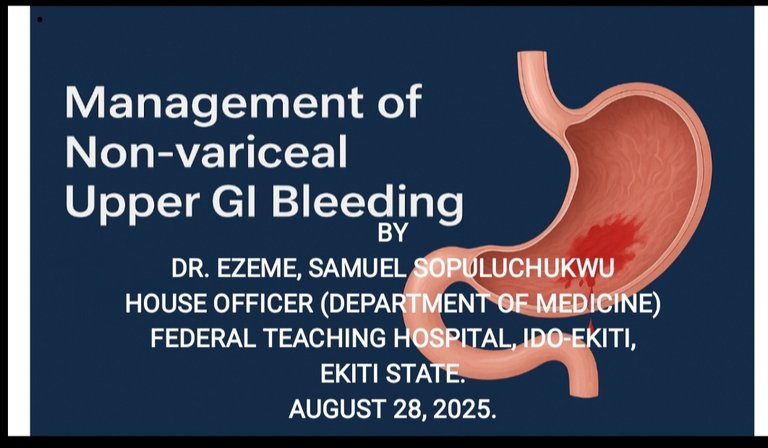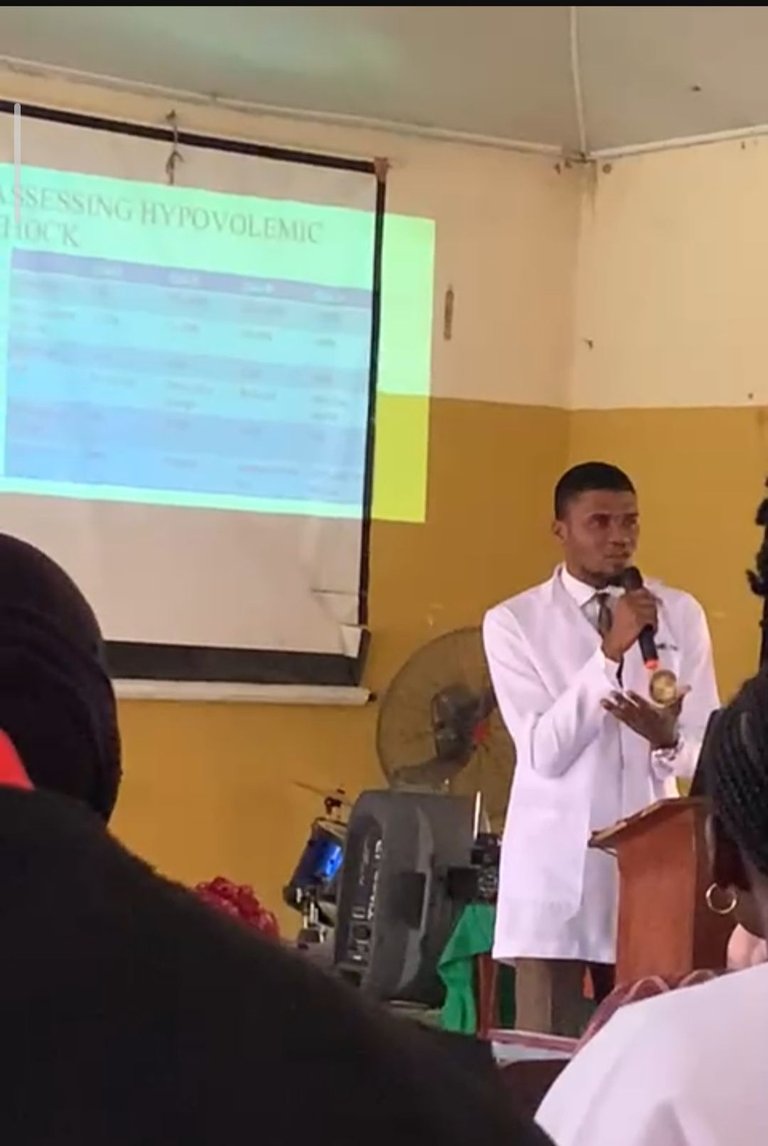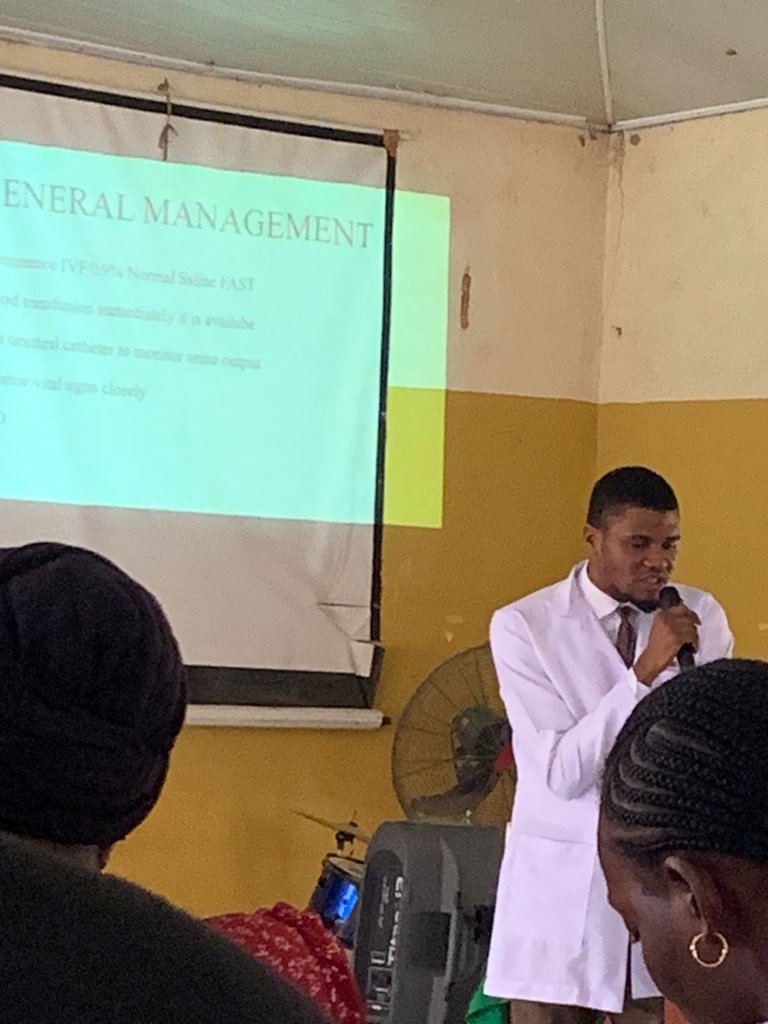Highlights From My Lecture: Management of Non-Variceal Upper GI Bleeding
Hello science lovers,
It's been a while..
Three days ago, I gave a lecture on the topic, Management of Non-Variceal Upper Gastro-intestinal bleeding. This is a very high yield topic that every doctor must know about and this is because of how fatal it could be.

Upper Gastrointestinal bleeding in itself is divided into two:
Variceal bleeding: arising as a result of portal hypertension.
Non-Variceal bleeding: arising mostly from the mucosal surfaces and other causes asides portal hypertension.
There are symptoms you can play around with, not that they are less likely to cause disasters or death but then, when you hear that someone lost blood from any of the external orifices, it is a symptom that makes one to be on their toes because of the instability that comes with it especially when the source of the bleeding has not been established and adequate intervention established.
I am not here to give you the lecture again, lol, I just want to highlight few things of interest that might benefit you and the people around you.

The gastrointestinal system starts from the mouth down to the anus... These are all lines with mucosal membranes which will bleed when inflammed. The commonest cause of upper gastrointestinal system bleeding is peptic ulcer disease and one of the greatest pathophysiology at which this occurs is via the abuse of The Non- Steroidal Anti-inflammatory Drugs (NSAIDS) popularly known as the painkillers .
The high tendency of men abusing this medication as a result of the various hard labours they do is what makes it a pathology commoner in males than women.
One of the things that makes management of this UGI Bleeding very hard is because of the fact that the rule in management is , "Replacing what is lost with what is lost" and in this instance, "Blood is lost and it is only blood that you will replace it with"
Now, that is to say that you can't manage this pathology at all in a hospital where there is no good blood banks available because sometimes these patients take up to 15 pints of blood and more.
The second most important principle in their management is then to find the source of the bleed. If you don't identify the source of this bleeding, the patient will continue bleeding and that will make your efforts futile.
Thirdly it is to stop the bleeding. At this point, there are many interventional therapies you can employ.
Pharmacological therapy: which involves the use of proton pump inhibitors which is a compulsory in the management of these patients
Endoscopy plus Endotherapy of which the mechanical therapies such as use of hemoclips are the commonest.
Also involves the Injection therapies with Adrenaline or sclerosants (e.g ethanolamine)Surgery and angiography: this is employed when all other methods have failed.

Finally, you want to make sure that this patient has no recurrence of this bleeding.
With all these done, you must have saved a life.
In summary, massive upper GI bleeding is a medical emergency and as always prevention will always be better than cure.
N/B: All Pictures Are Mine
Thanks for reading and have a nice day👍
This is quite an important medical knowledge. Even as a nonmedical person, it's good to be informed.
Glad you found it educative
Didn't want to bore the readers with so much medical knowledge on it so I just abridged it... It was an hour lecture with about 54 slides
Thank you
Thanks for your contribution to the STEMsocial community. Feel free to join us on discord to get to know the rest of us!
Please consider delegating to the @stemsocial account (85% of the curation rewards are returned).
Consider setting @stemsocial as a beneficiary of this post's rewards if you would like to support the community and contribute to its mission of promoting science and education on Hive.
Thank you very much